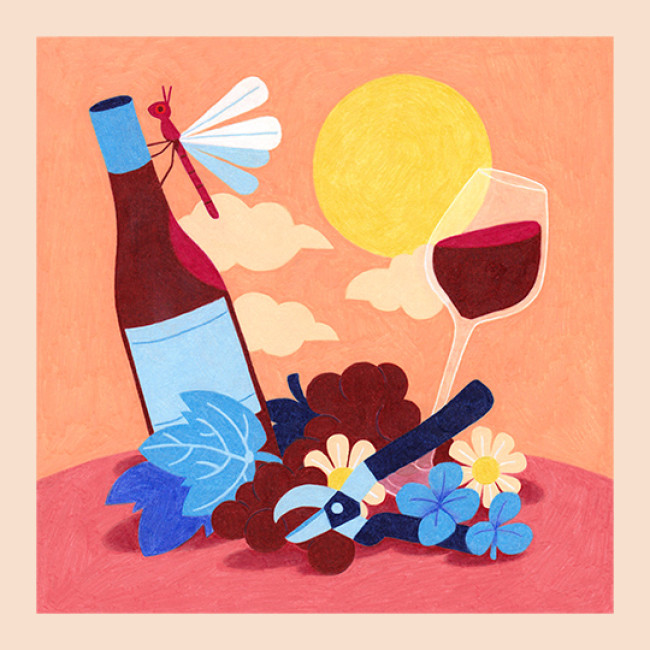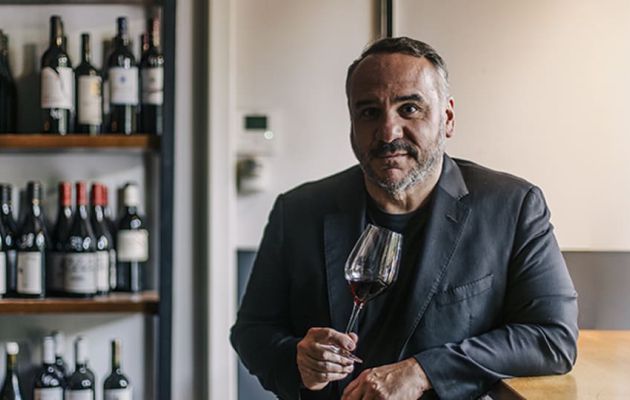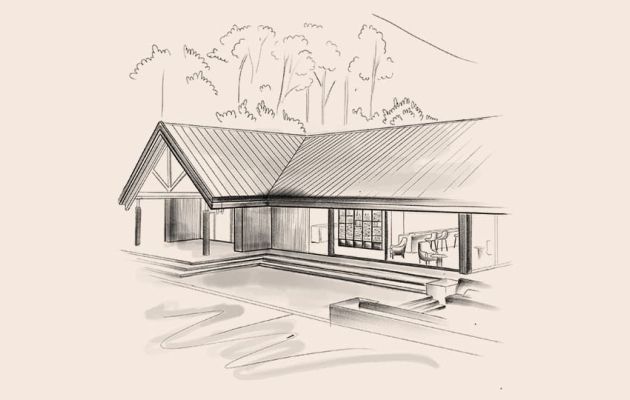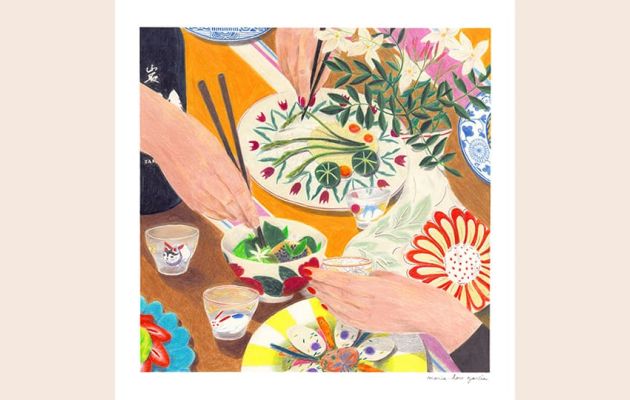
[ WINES ]
5 hopes for the wine of the future.
with Michelle Bouffard, Sommelier in Canada.
For almost twenty years, Canadian sommelier Michelle Bouffard has been reflecting on the links between wine and the climate. She has been mulling over the impact of climate change on vines, but also of viticulture on the environment.
Her thoughts led her to found the biennial symposium Tasting Climate Change to gather wine industry professionals in a bid to raise awareness of climate challenges and also to galvanise them into action. More importantly, she aims to show them practical opportunities for making a sustainable, planet-friendly wine designed for the long term.
Out in the field, she has seen that innovation and collaboration are already afoot across the globe. That’s because winegrowers in Gigondas can most certainly take inspiration from Australian techniques to cope with drought events, for instance.
From this story of resilience written between the vines, Michelle shares her five major avenues of hope to heal and reveal the wine of the future, starting now.
01.
Regenerative viticulture as a sustainable solution
“First of all, you have to ask yourself a simple, but fundamental question – what is sustainable viticulture? In my opinion, the best answer is regenerative agriculture. This way, you nourish the soil to make vines more self-sufficient, more resilient. This primarily involves reducing or even doing away with inputs altogether and introducing plants between the vine rows and animals to graze amongst the vines. A lot of winegrowers are taking up this approach and placing soils at the core of the system, because for wine, everything starts with life in the soil. The fascinating microbiologist Marc-André Selosse, who took part in my latest Tasting Climate Change conference, successfully demonstrated for instance that when you have a living soil – rich in micro-organisms – then the rest comes naturally”.
02.
How winegrowers are leading the way and setting an example
“What I find most inspiring is seeing how winegrowers – men and women – manage to cope with extreme conditions. Water is becoming a rare resource and yet some regions have already adapted by developing techniques to limit loss of water and strengthen vine resilience. I’m thinking mainly of regions faced with drought, like the Canary Islands, Santorini, South Africa and Australia. Pioneers like Vanya Cullen (Cullen Wines) in Australia and Johan Reyneke (Reyneke Wines) in South Africa have chosen to forego pesticides and drill down on their approach to biodynamics and regenerative agriculture. Ground cover plants, for instance, have enhanced organic matter, promoted microbial life and helped vines retain water, even if it falls in minute quantities. Consequently, the soils are aerated and the ecosystem finds balance”.
03.
Knowledge sharing as a tool for resilience
“In addition to drought, some wine regions are facing unprecedented crop losses due to mildew caused by wet conditions. To adapt over the long term, you need to open up to techniques from other regions. I am convinced that by bringing everyone to the table we will find solutions and inspire change. For instance, I helped set up a course for winegrowers in Gigondas about water management, inspired by Australian techniques. The aim is not to do a copy-and-paste but to open up to other ways of doing things and adapting them to suit one’s own vineyard sites – like finding suitable native cover crops that will not compete with vines. Sowing plants between the vine rows not only increases organic matter in the soils, it also prevents erosion, reduces evapotranspiration and helps water seep into the soils when it rains”.
04.
A new, clear-headed generation on a mission
“The next generation in the wine industry is much more aware of climate issues. It is no longer a peripheral topic but a core issue. Young industry members are aware that they need to produce in a different way, rethink techniques and question their legacy. Most importantly, they are inquisitive, going out and seeing what is happening elsewhere, understanding and experimenting. This reminds me of Michel Gassier, a winegrower in the Costières de Nîmes area. When his daughter returned to the winery from work experience in California, she encouraged him to review his practices. She told him, “Dad, we farm organically, but that’s not enough. We need to switch to regenerative viticulture”. This constant soul-searching is what will make all the difference”.
05.
Enlightened – and enlightening – consumer choices
“Consumers play a pivotal role by voting with their wallets! More and more people now want to make mindful choices and support environmentally-friendly products. In North America, ‘sustainable’ certification is extremely successful because it is viewed as a holistic approach and is even more powerful than the French term ‘durable’, despite being its direct translation. In addition to endorsements, we often surround ourselves with people who share our ideas. But sometimes, being bold enough to have those uncomfortable or difficult conversations can provide the spark for change”.
Illustration - Ambre Verschaeve
Illustrator Ambre Verschaeve trained in Paris at the Atelier de Sèvres, then at HEAD–Geneva, where she earned a Bachelor's degree in Visual Communication in 2018. Her vibrant, colorful style brings to life detailed illustrations inspired by nature, often highlighting landscapes and animals she encounters during her walks and travels: "I love creating rich, intricate worlds where you can get a little lost in the drawing—landscapes I’d like to escape into myself, like little sanctuaries.” Her favorite medium is colored pencils, especially Luminance 6901 ©, prized for their vivid hues and velvety texture.
Prolong the experience
Discover the profiles of creative and influential personalities explaining their relationship with wine, the secrets of sommeliers or legendary establishments.
When you subscribe to the magazine, your email address is only used to send you our content newsletter. You can unsubscribe at any time by clicking the unsubscribe link included in each newsletter. To find out more about management of your data and your rights, click here .



